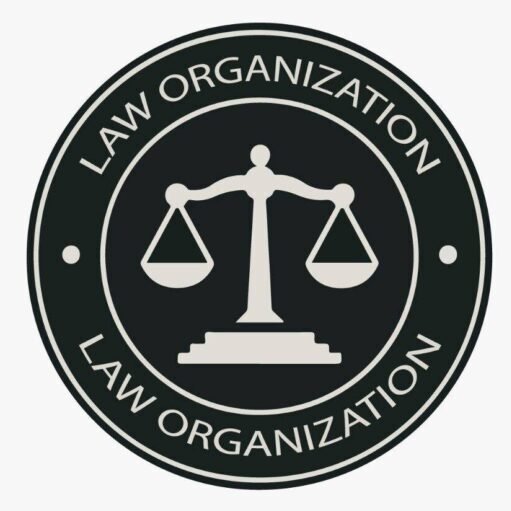As you see there are so many crimes being conducted on the internet and due to this there are lots of boundaries on what we can watch on the internet. So, everyone has a question about what is illegal to watch on the internet.
Let’s explore the world of porn and the law in India. While watching adult content privately is generally okay, there are some legal limits to be aware of. This blog will break down these rules in a simple way, focusing on how the law views the consumption and sharing of explicit content. We’ll also touch on recent cases like the Raj Kundra pornography case to understand the current legal landscape surrounding this issue in India. It is important to know about what is illegal to watch on the internet.

Porn Legality in India:
Regarding the legality of pornography in India, it’s okay to watch it privately. The law mainly focuses on prohibiting its production, distribution, transmission, and publication.
Under Section 67 of the IT Act 2000, publishing or transmitting obscene material online can lead to 3 years in prison or a fine of 5,00,000 rupees. For repeat offenses, the penalty increases to 5 years in prison and a 10,00,000 rupees fine. Additionally, Section 293 of the Indian Penal Code (IPC) 1860 addresses the sale of obscene objects to young people, punishable by 3 years in prison or a 2,000 rupees fine. Subsequent convictions may result in 7 years of imprisonment and a 5,000 rupees fine.
To address this issue, suggestions include introducing sex education in higher education, organizing conferences and seminars for awareness, and considering the creation of a separate law specifically for the prohibition of pornography.
Pornography and Indian laws
In India, certain sexually explicit or pornographic images are punishable under the law if they are considered “lascivious,” appealing to improper desires, or have the potential to corrupt individuals. The laws governing this include:
- The Indian Penal Code, 1860 (IPC).
- The Information Technology (IT) Act of 2000.
- The Protection of Children from Sexual Offenses Act (POCSO), 2012.
- Women’s Indecent Representation (Prohibition) Act of 1986 (IRWA).
However, these laws don’t precisely define “pornography” or “obscenity.” This lack of clarity makes it challenging to determine if someone’s actions, like owning, creating, or distributing explicit content, are illegal. Not all pornographic material is necessarily considered obscene, leading to varying penalties or sometimes no penalty at all.
The terms “pornography” and “obscenity” have subjective meanings that have evolved over time with changes in society and perspectives. The interpretation of “sexually explicit” also plays a crucial role in deciding the severity of punishment.
Illegal online content
Illegal content online is the most harmful kind of material. It includes things that show, describe, or encourage violent crimes like:
- Hurting children in a sexual way
- Acts of terrorism
- Murder
- Trying to commit murder
- Rape
- Torture
- Kidnapping with violence or threats
- Suicide
Child sexual exploitation material is when someone uses unfair and inappropriate ways to show a child or young person under 18 in a sexual manner. It also includes materials that show them being sexually abused. This kind of content is not only illegal but also extremely harmful and wrong.
Raj Kundra pornography case
The Raj Kundra pornography case refers to a legal situation involving businessman Raj Kundra in India. Kundra, husband of Bollywood actress Shilpa Shetty, was arrested in July 2021 for his alleged involvement in the creation and distribution of explicit content through mobile applications. The charges include conspiracy, cheating, and publishing or transmitting obscene material.
The Mumbai Police claimed that Kundra was a key conspirator in a case related to the production and distribution of pornographic material via mobile apps. These apps allegedly bypassed restrictions by operating under the guise of streaming platforms and used unethical means to generate revenue.
The case highlighted issues related to the regulation of online content and the legal implications of producing and distributing explicit material. Raj Kundra faced legal proceedings, and the case drew attention to the need for clearer regulations in India’s digital space.
Indian Legal Framework (What is illegal to watch on the internet in India)
The main law dealing with criminal offenses in India is the Indian Penal Code of 1860. However, since this law was created before the internet existed, it doesn’t specifically address online activities. Still, it does touch upon showing pornography without consent in Section 354A, considering it an offense that could outrage the modesty of a woman.
The primary law governing pornography in India is the Information Technology (IT) Act of 2000, amended in 2008. Section 67 of this act focuses on the publication or transmission of obscene material in electronic form, treating it as an offense. Section 67A outlines the punishments related to this offense.
Section 67B of the IT Act goes a step further. It not only declares transmitting or publishing pornography involving children as punishable but also makes creating, collecting, downloading, or browsing child pornography material from any internet network an offense. This strengthens the legal stance against any involvement with explicit content featuring minors.
Using Unofficial Streaming Services
People often ask, “What can’t you watch on the internet legally?” Unofficial streaming services are illegal to use in India. So, watching movies, TV shows, music videos, or premium sports content for free online is against the law. These services can also be risky. If they’ve stolen content from production companies, there’s a potential risk that they could also compromise your personal information.
Child Pornography In India
In India, child pornography is illegal and is covered by the Information Technology Act, 2000, and the Indian Penal Code, 1860. A child, in this context, refers to someone below 18 years old. The widespread use of the internet has unfortunately led to an increase in child sexual abuse globally. As internet access becomes more common in Indian households, children are increasingly at risk of falling prey to cybercrime.
Pedophiles often exploit the easy availability of explicit content online to target children. They may distribute such material, build trust with children in chat rooms by posing as peers, and then attempt to engage them in inappropriate activities. The Information Technology Act makes it illegal not only to create or transmit child pornography electronically but also to browse or access it.
For a first offense of publishing, creating, exchanging, downloading, or browsing any electronic depiction of children in an obscene or sexually explicit manner, the punishment is imprisonment for 5 years and a fine of Rs 10 lakh. Section 67 of the Information Technology Act deals with publishing obscene information in electronic form. However, this section does not apply to content used for religious, scientific, literary, artistic, or educational purposes.
While the law doesn’t explicitly define pornography or make it an offense, Section 67B addresses the punishment for engaging in sexually explicit electronic or online content depicting children. It is also illegal to involve children in sexual acts or online relationships.
![You are currently viewing What Is Illegal to Watch on the Internet?[Under IT Act 2000]](https://pornography-laws.com/wp-content/uploads/2024/12/Leonardo_Phoenix_10_A_dramatically_lit_highcontrast_image_feat_3-1.jpg)



